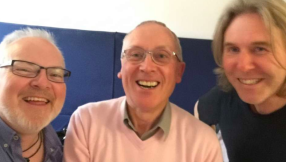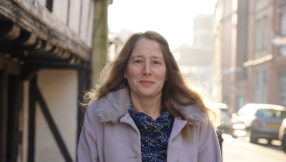
Last week, the UK Supreme Court delivered a powerful and long-overdue judgment: families who lose children in hospital-led, court-ordered end-of-life decisions have the right to tell their stories. The Court ruled that the indefinite gagging orders historically imposed on grieving parents—prohibiting them from naming hospitals or clinicians—are a disproportionate infringement on free speech and a betrayal of open justice.
The case was brought by the families of Zainab Abbasi, a 6-year-old girl, and Isaiah Haastrup, who died at just 12 months. Both families faced unimaginable battles. In each case, the treating hospitals applied to court to withdraw life support. And in both, sweeping and indefinite reporting restrictions were placed on the parents, effectively silencing them for life.
These were not just personal tragedies; they were public interest matters. Yet until now, those most affected were barred from speaking. What should have been a moment for societal reflection on the ethics of life-ending medical decisions was buried under layers of legal secrecy.
With our support at the Christian Legal Centre, the Abbasi and Haastrup families took their fight for transparency to the UK’s highest court. Their legal team—barrister Bruno Quintavalle and solicitor Pavel Stroilov—succeeded in securing a ruling that fundamentally shifts the balance back toward open justice.
The Supreme Court held that the gag orders imposed in these cases could not continue indefinitely. It affirmed that clinicians, while entitled to protection from real threats, do not enjoy a blanket right to anonymity. As the Court put it in paragraph 181 of the ruling:
“Given that the parents’ publication of their concerns would contribute to a debate of general interest… it would be difficult to justify the continuation of the injunctions in the absence of evidence demonstrating a real and continuing threat of a serious nature.”
This ruling is a watershed moment. It recognises that clinicians—acting as public servants in decisions of life and death—are not immune to scrutiny. It also acknowledges that the grief of a parent should never be compounded by the enforced silence of state-imposed secrecy.
The details in these cases are harrowing. Isaiah suffered fatal brain injuries as a result of admitted medical negligence at King’s College Hospital, the same hospital that later petitioned to end his life. Zainab’s father, Dr Rashid Abbasi, a respected NHS consultant, was arrested by her bedside for refusing to leave her side—an event that went viral on social media. And yet, due to reporting restrictions, the public could not even name the hospital responsible.
Until now, proceedings before the Court of Protection have remained shrouded in secrecy. Reporting restrictions are routine, even where the public interest is immense. In many cases, families are prevented from raising funds to fight these legal battles because they cannot share basic facts about their situation. The system is too often stacked in favour of the hospitals, which benefit from unlimited taxpayer-funded legal representation, while families navigate unfamiliar territory with limited resources and little support.
This imbalance has endured because the process has remained largely hidden. Thanks to the courage of the Abbasi and Haastrup families—and the skilled advocacy of the Christian Legal Centre and its legal team—we now have the first meaningful breach in that wall of silence.
They were not alone in court. Families of Archie Battersbee, Sudiksha Thirumalesh, Indi Gregory, Pippa Knight, and Hyacinth McIntosh stood in solidarity, all of them having endured similar ordeals. Each of these cases reveals a system that is not only too secretive but also too swift, too biased, and too unaccountable.
The Supreme Court ruling does not undo the harm these families suffered. But it offers a measure of justice—and a chance for reform. It signals to future families that their stories matter, that they are not alone, and that the machinery of life-ending decisions will no longer operate entirely behind closed doors.
This is just the beginning. The legal system must reckon with how it handles the most fundamental question of all: who decides whether a life is worth saving? And if such decisions are to be made, they must be subject to full scrutiny—not hidden from the light of public accountability.
Change is coming. And it’s the truth, finally told, that will lead us there.













